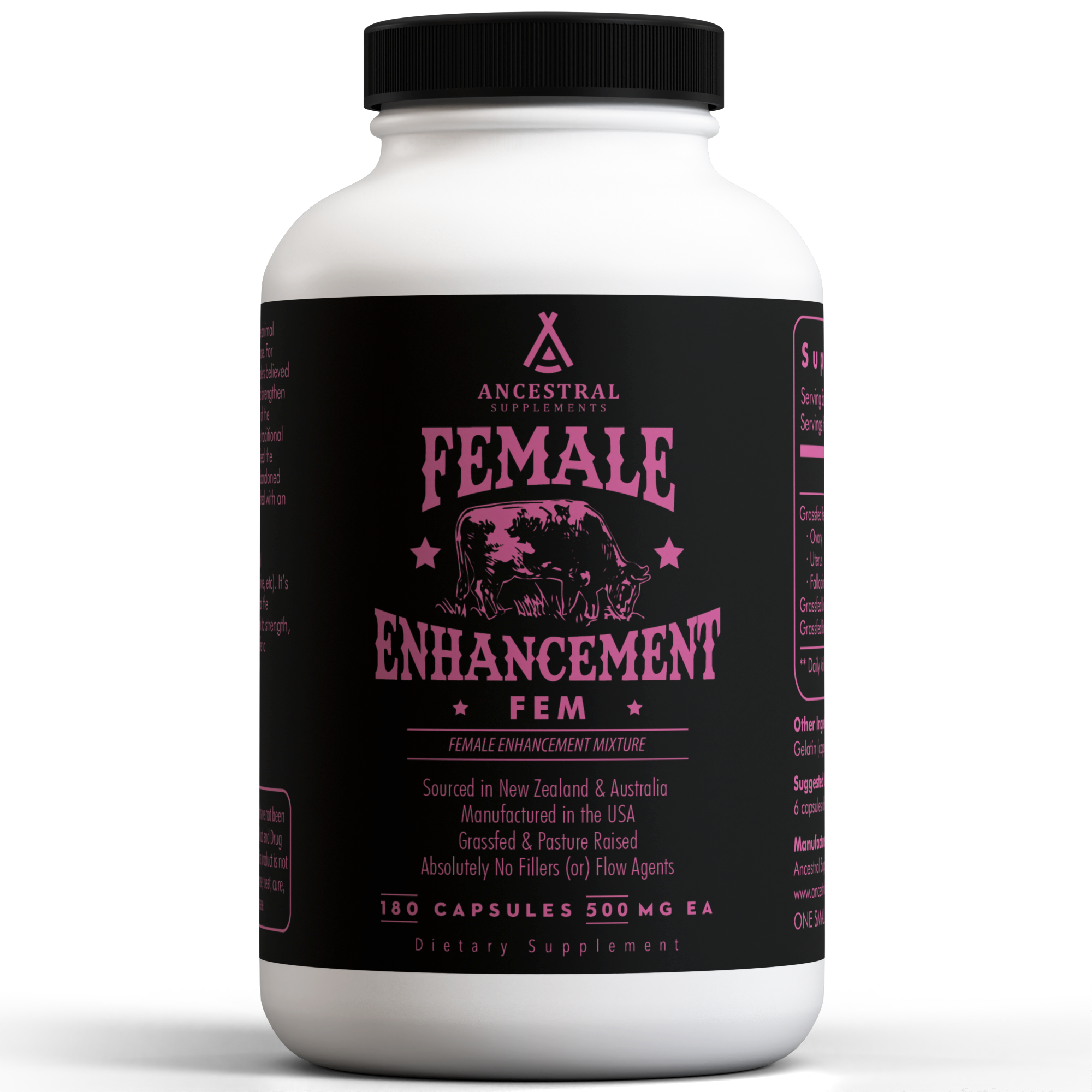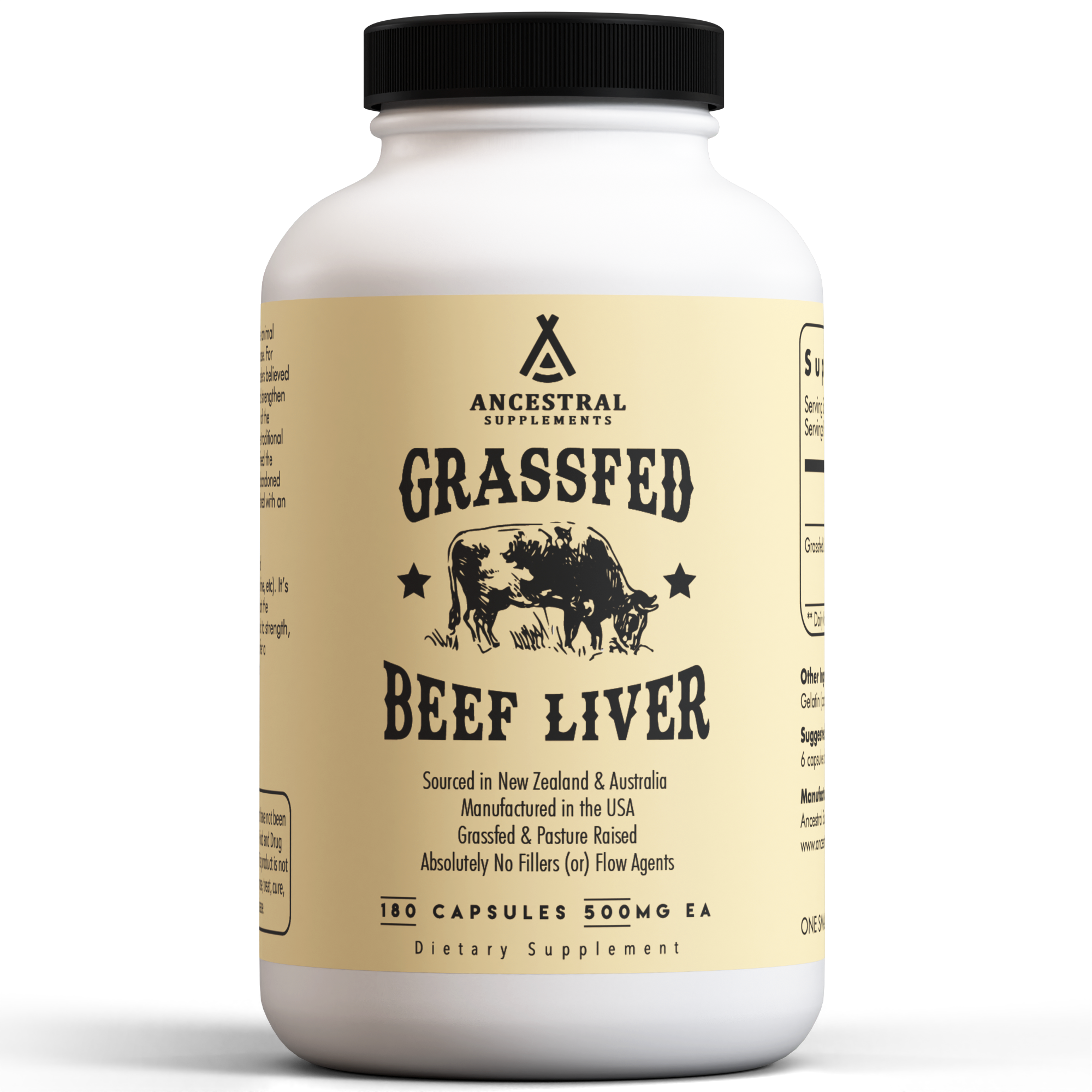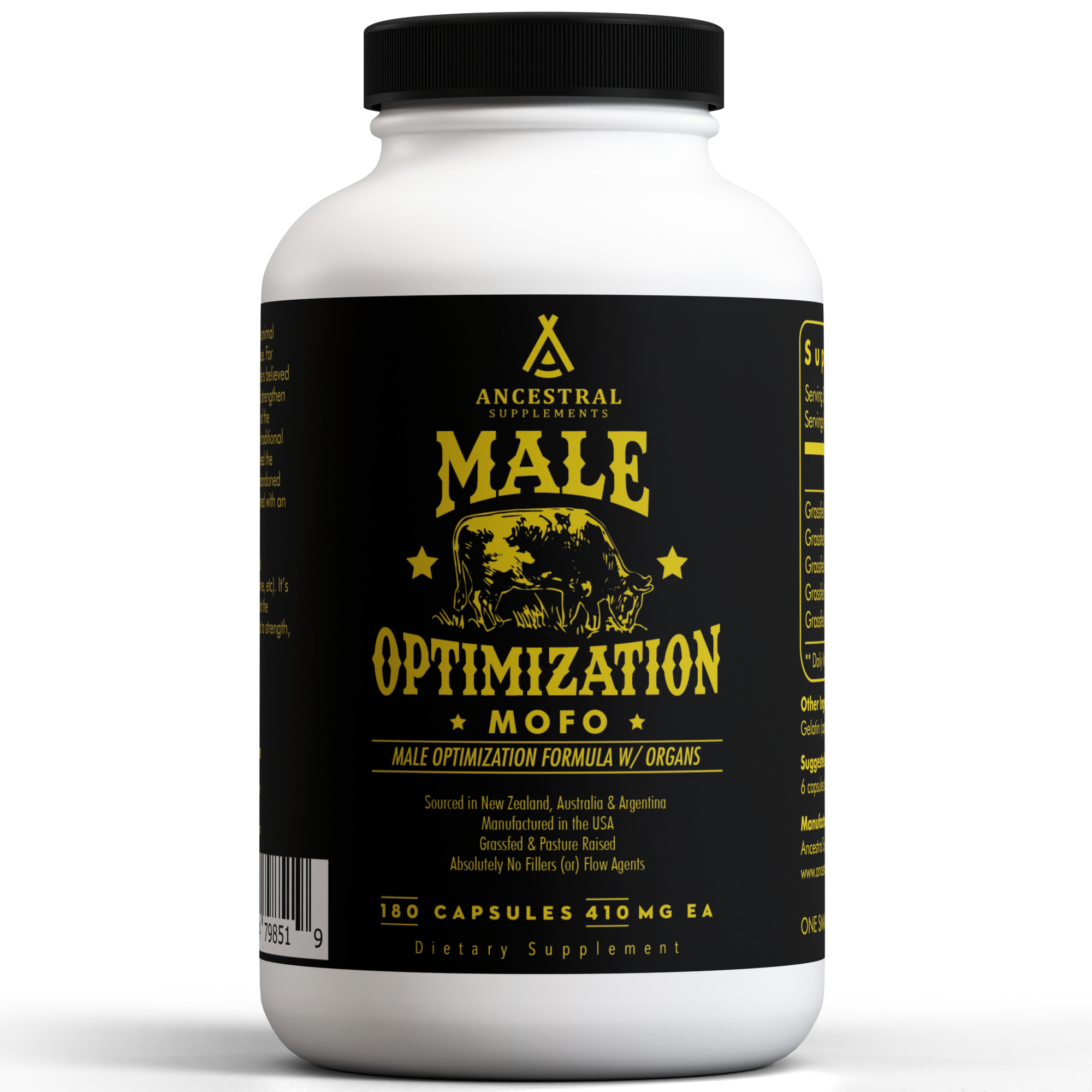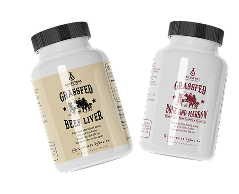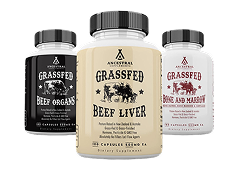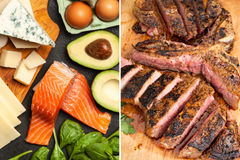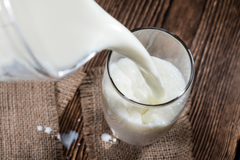Carnivore Diet for Women: Benefits, Precautions, & Tips

The carnivore diet, which consists entirely of animal products, is gaining traction among women searching for solutions for conditions such as PCOS or endometriosis, weight gain, and digestive issues. While the diet is restrictive, it's also simple and effective at addressing health issues where many other diets fall short.
This article will explore what the carnivore diet entails, its benefits and considerations specifically for women, and a thorough explanation of how it can impact women's health.
What Is the Carnivore Diet?
The carnivore diet is an all-animal-product diet that excludes all plant-based foods.
The diet consists of meat, fish, eggs, organ meats, and in some cases, limited dairy products (such as butter and cream). For the greatest health benefits, the diet emphasizes eating whole foods and avoiding processed meats and other products that contain additives.
The carnivore diet draws on the belief that ancient humans thrived on primarily animal-based diets, since foods like fish and meat were the types that were mostly available before modern agriculture. Advocates for this type of ancestral diet argue that such diets were nutrient-dense and excluded modern processed foods—especially added sugar and refined grains—which can help prevent many diseases that are common today, such as obesity and diabetes.
Compared to other diets, even low-carb ones like the ketogenic diet, the carnivore diet is more restrictive and lower in carbs. In fact, the carnivore diet contains zero carbs, which is the key to many of its unique benefits.
In some ways, the carnivore diet combines aspects of the keto and Paleo diets by eliminating plant foods and carbohydrates. But unlike the ketogenic diet, which includes plant-based fats and vegetables to maintain ketosis, or the Paleo diet, which allows nuts, seeds, and a wider variety of fruits and vegetables, the carnivore diet focuses solely on animal-derived foods.
Potential Benefits of the Carnivore Diet for Women
A diet that includes zero fruits, vegetables, or whole grains might have you scratching your head, wondering if it can actually be safe or healthy. While the carnivore diet is not recommended as often as diets like the Mediterranean diet, its restrictiveness can help people, including women, to overcome specific health problems.
Here's more about the potential benefits of the carnivore diet specifically for women:
1. Supports Hormone Regulation and Balance
The diet's high-fat, moderate-protein content can significantly influence hormonal balance, potentially easing conditions such as insulin resistance, PCOS, and endometriosis.
High consumption of carbohydrates, especially refined sugars and starches, can lead to spikes in blood sugar levels, which prompt the pancreas to produce insulin to lower blood sugar. Over time, frequent spikes can lead to insulin resistance, where cells become less responsive to insulin. This condition can disrupt normal hormone signaling and production.
Insulin resistance and unstable blood sugar levels in women can disrupt the balance of other hormones, including cortisol (the stress hormone), estrogen, and progesterone. For example, high insulin levels can stimulate the adrenal glands to produce more cortisol, disrupting normal stress responses.
Insulin resistance can also lead to conditions such as polycystic ovary syndrome (PCOS), where ovarian hormone production is affected, leading to imbalances in estrogen and progesterone. These imbalances can affect menstrual cycles, fertility, and other aspects of reproductive health.
Overall, women who maintain insulin sensitivity with help from a very low-carb diet can use insulin more effectively to manage blood sugar levels and are less likely to experience hormonal disruptions, such as PCOS.
2. Weight Management and Metabolic Health
Eliminating carbohydrates and sugar helps reduce insulin spikes and can lead to effective weight management and significant metabolic health improvements, potentially reversing obesity or metabolic syndrome better than other types of diets.
Without the regular intake of carbs, the body shifts to burning stored fat for energy, which can promote fat loss and reduce the risk of developing conditions such as type 2 diabetes and heart disease.
Over time, this metabolic shift can also stabilize appetite and reduce cravings while boosting energy levels, making it easier to maintain a healthy weight without constant hunger or fluctuations in energy.
3. Reduction in Inflammation and Autoimmune Symptoms
By cutting out known inflammatory and allergenic foods—which are common in Western "modern diets"—some women may see a reduction in autoimmune symptoms, as a healthy diet helps modulate the immune system and reduce systemic inflammation.
The carnivore diet approach eliminates many food triggers like gluten, sugar, and artificial additives, which are found in many processed foods and often implicated in inflammatory responses.
The high intake of omega-3 fatty acids, such as from animal fats like oily fish, can further help to control inflammation, potentially alleviating symptoms of autoimmune conditions such as rheumatoid arthritis and multiple sclerosis.
4. Mental Clarity and Mood Stability
Many people on the carnivore diet report a boost in mental energy and mood stability due to the constant energy supply from fats and proteins, which avoids the blood sugar spikes and dips associated with carb consumption. A diet high in fats and protein (such as the keto diet, which has similar effects as the carnivore diet) may lead to a lower incidence of mental health issues like anxiety and depression.
Sustained cognitive function is also supported by stable glucose levels, which are crucial for brain health and efficient mental performance.
5. Skin, Hair, and Nail Health
The high content of protein and collagen in animal products can improve the structure and appearance of skin, hair, and nails, potentially helping to manage dermatological conditions and promoting healthier aging.
For example, collagen, a vital component of healthy skin and joints, is present in the carnivore diet (such as from bone broth and collagen protein supplements) and can help improve skin elasticity and fight signs of aging.
Additionally, rich sources of zinc and vitamin A, such as beef or chicken liver and other organ meats, can help support skin repair and maintenance.
The Science Behind the Carnivore Diet for Women's Health
Limited studies have looked at the benefits of zero-carb diets in women specifically. Additionally, most of the research available thus far has not focused on zero-carb diets, but rather on low-carb diets. However, research continues to explore how low-carb diets affect women’s specific hormonal health needs.
That said, observational reports and anecdotal evidence suggest that women following the carnivore diet (or a modified carnivore diet) can experience improvements in hormonal balance, fertility, and symptoms of hormonal disorders, such as PCOS, which can sometimes drastically improve their quality of life.
The research focused on other very low-carb diets for women, such as the ketogenic diet, have revealed benefits for women, such as helping reduce fat mass and improve insulin sensitivity. For example, one systematic review that focused on the impact of low-carbohydrate diets on fertility outcomes in infertile women found that most women reported positive changes in reproductive hormones and fertility outcomes after adopting this eating pattern, especially when combined with other treatments like calorie reduction.
A 2022 study published in Frontiers found that exercise coupled with a low-carb diet can help improve cardiometabolic health and lower anxiety levels in overweight women.
Yet another ongoing study published in the journal Nursing for Women's Health states, "For women, obesity may affect stages of life, including early menarche, fertility, pregnancy, and menopause as a result of hormonal imbalances and insulin resistance…Together, low-carbohydrate dietary patterns along with intermittent fasting may help individuals with insulin resistance not only lose weight but also increase their insulin sensitivity."
How Protein and Fat Consumption Affects Women's Health:
High intake of protein and fats on the carnivore diet supports tissue repair, brain health, and muscle maintenance, and it can also potentially help regulate hormones through sustained energy supply and insulin sensitivity.
This type of diet is also very filling (satiating), which reduces the chances of over-eating and gaining weight.
For example, animal products such as meat, organ meats, and eggs contain a rich amino acid profile, as well as many essential vitamins and minerals, and healthy fats, that can aid in the synthesis of reproductive hormones and enzymes while also decreasing "hunger hormones." These enzymes and hormones can help regulate bodily functions in women, including metabolism and reproductive health.
Nutrient Density of the Carnivore Diet & Female-Specific Nutritional Concerns:
Quality animal products are rich in nutrients including:
-
Protein
-
Iron (specifically heme iron, the most absorbable type)
-
B vitamins, such as B6 and B12
-
Zinc
-
Vitamin A
-
Fats, such as omega-3s
For women in particular, the nutrients found in animal products (like iron, protein, and omega-3s) can provide benefits like improved energy, immune function, mental well-being, and overall female health, including menstrual cycle health and pregnancy.
Also importantly, the bioavailability of these nutrients from animal sources is generally higher than that from plant sources. In other words, consuming a varied amount of high-quality animal products, such as organ meats like liver and wild-caught fish, can lead to more effective absorption and utilization of essential nutrients.
Common Challenges Women Face on the Carnivore Diet
While many women report feeling more energized, clear-headed, and balanced on a carnivore diet, the transition isn’t always seamless. Becoming aware of common challenges that can come up, especially in the early stages of the diet, can help you get through them more easily and stay consistent.
1. The Adaptation Period
Transitioning to an all-meat diet can cause initial physical discomfort and cravings as the body adjusts to new fuel sources. This period is often marked by symptoms commonly referred to as the "meat sweats," including increased perspiration and temporary shifts in energy levels.
Some also experience what's known as the carnivore flu, which is a short-term cluster of symptoms like fatigue, brain fog, irritability, and headaches as the body shifts from burning carbohydrates to relying on fat for fuel. Adapting to a fat-based metabolism can take several weeks, during which fluctuations in energy levels, digestion, and mood are common.
2. Menstrual Changes and Hormonal Adjustments
Some women might experience irregularities in their menstrual cycles during the initial adaptation to the carnivore diet. These changes are generally temporary as the body adjusts to new dietary inputs. During this period, it's helpful to consult with a healthcare provider if changes in menstrual cycles or other symptoms persist or cause concern.
3. Social Challenges and Dining Out
Navigating social situations and restaurant menus can be challenging when following a more restrictive diet. Strategies for managing these social dynamics can really come in handy.
For example, planning ahead, communicating preferences clearly, and choosing dining locations that can accommodate the carnivore diet can help mitigate these challenges. Overall, do your homework ahead of time to ideally find places where it's easy for you to eat, or consider bringing carnivore-approved dishes to parties and get-togethers.
How to Start the Carnivore Diet as a Woman
The best way to start the carnivore diet as a woman is with a gradual, thoughtful approach.
This step-by-step reduction can help your body adjust to a lack of carbohydrates without the shock of an immediate switch, helping to reduce symptoms like fatigue, irritability, or digestive upset.
Transitioning Strategies (Gradual vs. Cold Turkey Approach):
-
Gradual Transition: For many women, a gradual transition to the carnivore diet may be more sustainable and less shocking to the system. Start by eliminating processed foods and sugars, then gradually reduce other carbohydrates like fruits and vegetables over a few weeks. Increase your intake of meats and animal fats slowly, allowing your digestive system to adapt.
-
Cold Turkey Approach: Some may prefer to dive straight into the carnivore diet for quicker adaptation to fat metabolism. This method involves immediately eliminating all plant foods and focusing solely on animal products. It can be effective but might lead to more intense initial symptoms such as fatigue, headaches, or digestive changes, commonly referred to as the "carnivore flu."
Food List: What to Eat and What to Avoid:
What to Eat:
-
All types of meat: Beef, pork, lamb, chicken, turkey, and other game meats.
-
Fish and seafood: Salmon, mackerel, sardines, crab, lobster, and shrimp.
-
Animal fats: Tallow, lard, and butter.
-
Organs: Liver, kidneys, heart, and brain are especially nutrient-dense.
-
Eggs: Whole eggs are a staple for their protein and fat content.
-
Dairy: Cheese, kefir, heavy cream, and cottage cheese.
What to Avoid:
-
All plant foods: Includes vegetables, fruits, nuts, seeds, grains, and legumes.
-
Processed foods: Anything packaged with additives or preservatives.
Meal Planning Ideas for Busy Women:
Here's the good news: meal planning on the carnivore diet can be straightforward due to its simplicity. Here are a few ideas and tips:
-
Batch Cooking: Cook large quantities of meat at the start of the week, such as roasts, ground beef, or several chicken breasts, to use throughout the week.
-
Slow Cooker Meals: Utilize a slow cooker to make stews or pot roasts that can be prepared in the morning and be ready by dinner.
-
Simple Pairings: Pair fatty cuts of meat like ribeye steaks with eggs for breakfast, or a burger patty with a slice of liver for lunch.
-
Quick Snacks: Keep boiled eggs, jerky (without additives), or canned fish handy for quick, satisfying snacks.
Supplement Considerations:
While the carnivore diet delivers a powerful array of nutrients from animal-based foods, there are still a few common gaps that thoughtful supplementation can help fill, particularly during the transition period or for women with specific health goals.
Key Nutrients and Helpful Additions for Carnivore Dieters (Especially Women):
-
Electrolytes: Sodium, potassium, and magnesium are quickly depleted during the initial shift into ketosis. Supplementing with Ancestral Minerals or adding bone broth and high-quality salt to meals can help prevent symptoms of the "carnivore flu," like fatigue, muscle cramps, or dizziness. This whole-food mineral blend helps replenish critical electrolytes and trace minerals that can be lost through sweat, fasting, or dietary restriction. It’s especially useful during the adaptation phase of the carnivore diet or for those experiencing energy dips, sleep disturbances, or stress-related fatigue.
-
Grass Fed Beef Liver: Liver is nature’s multivitamin, packed with preformed vitamin A, heme iron, B12, choline, and folate, all in their most bioavailable forms. If you’re not regularly eating fresh liver, Grass Fed Beef Liver capsules are a convenient and potent way to get these vital nutrients without the strong taste. Just six capsules a day delivers the equivalent of one ounce of fresh, freeze-dried liver.
-
FEM (Female Enhancement Mixture): Designed specifically for women, FEM blends five essential grass-fed organs—ovary, uterus, fallopian tube, liver, and bone marrow—offering a unique profile of proteins, peptides, and molecular biodirectors to support female hormone balance, energy, libido, and menstrual cycle health. It also includes CoQ10 for mitochondrial support and support for healthy aging, along with collagen-rich bone and marrow tissues for connective tissue strength and fertility support.
Monitoring Your Health on the Carnivore Diet
It's important to monitor your health through regular check-ups and blood tests. Key biomarkers for women on the carnivore diet include:
-
Cholesterol levels
-
Thyroid function, especially if you're concerned about fertility
-
Vitamin levels, particularly B12, vitamin D, and iron status
-
Monitoring your own menstrual cycles to pick up on signs of irregularity
Regular blood work can help track how the diet is affecting your body and allow for adjustments before any serious health issues arise. Monitoring should ideally occur every three to six months, or as recommended by your healthcare provider.
Key Takeaways on the Carnivore Diet for Women
The carnivore diet requires careful consideration and a personalized approach, especially for women. Whether you're seeking improvements in specific health conditions like PCOS, weight loss, or general wellness, the carnivore diet can be a powerful tool when adjusted to fit your needs and goals.
Always listen to your body's signals and seek guidance from healthcare professionals to ensure that your diet supports rather than compromises your health. And for nutritional insurance, consider adding Ancestral Supplements to your routine, such as Grass Fed Beef Liver for foundational support, FEM for hormone balance, or Ancestral Minerals to maintain electrolyte and trace mineral levels.

